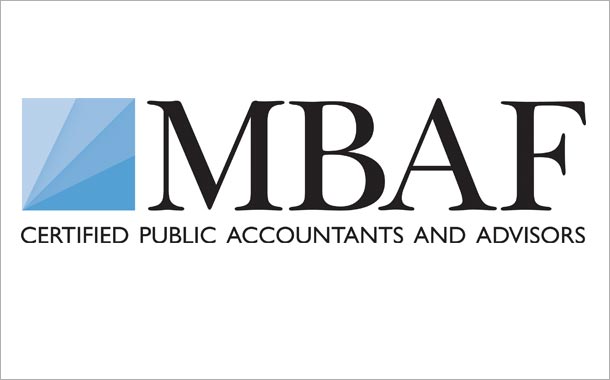By Ira Silver CPA, CGMA, Principal, MBAF LLC and David Silver, CPA Manager, MBAF LLC
Thanks largely to the relative strength and stability of our economy, our banking, and our political systems, the United States is considered an attractive place for non-US businesses and individuals to invest their money. As many countries around the world face increasing destabilization, we have seen an increase in foreign investment in the US, along with the numbers of individuals immigrating here each year.
According to the most recent census, approximately 11.4 million individuals, or 21% of all married-couple households in the US, had at least one foreign born spouse. The US automotive industry has seen its fair share of action as a result of the high-level of inbound investments.
It’s no secret that automotive dealerships experienced very high levels of M&A activity in 2015. Thanks to sustained top and bottom-line growth and increases in dealership value, we have continued to see strong interest in buying and selling dealerships through the first quarter of 2016. It is only natural that the automotive industry has become a target for foreign buyers seeking to make investments in the United States.
These so-called “cross-border” M&A transactions bring a new level of complexity to an already complex process.
Taxing Concerns with Cross Border Dealership Acquisitions
As the name implies, a cross-border M&A transaction is one in which the target company’s assets are purchased by an acquirer who is based in a different country. In an “inbound” dealership transaction, the seller’s dealership assets are based inside the United States and a foreign buyer purchases those assets either individually or through the use of entities. As you might imagine, this raises concerns that you may not encounter in ordinary transactions between two domestic parties.
With any kind of cross-border transactions, it is imperative that you work with a team who has handled such transactions in the past and is familiar with the intricate legalities and regulations involved. Tax matters are particularly critical when it comes to structuring cross-border transactions.
For example, a foreign buyer must be aware of the definition of “US income tax residence” and its implications, along with how tax residence may differ from their immigration status. They should also give consideration to US estate tax regulations, specifically noting that non-citizen, non-domiciliaries only have a $60,000 estate tax exemption whereas US citizens have a $5,450,000 exemption. A foreign buyer should have a team of professionals in place that are able to review the relevant tax treaties between the US and the buyer’s home country, which is crucial to planning for an acquisition.
In many cases, it makes sense to create a structure employing the use of domestic and/or foreign trusts, partnerships and/or corporations, to achieve maximum income and estate tax efficiency. This is true in both the US and in the buyer’s home country. A foreign buyer’s team of professionals should review draft ownership agreements, and any potential capitalization needs, to determine an appropriate debt/equity mix.
For example, the portfolio interest exemption rules can be a powerful planning tool for a less than 10% owner who wants to lend a sizeable amount to the dealership. It should also be noted that specific withholding requirements exist for certain classes of income/payments, such as interest, dealership earnings, dividend distributions, etc., that flow to a non-US owner/lender.
It should also be noted that that different countries have different accounting rules and standards, which adds another layer of complexity for the buyer’s accounting team. All of this, and more, must be taken into consideration when advising a foreign buyer on the complexities of acquiring a US dealership.
Other Points to Consider
A foreign buyer and their team should also give special consideration to the operational challenges that arise with the acquisition of a US dealership. The foreign buyer should be familiar with all the departments of the dealership, and the idiosyncrasies of their particular operations.
However, in the case of a non-US buyer –particularly those who may own or operate dealerships in other countries – gaining that knowledge and understanding can be much more difficult due to differences in standard business methods, software, culture and language.
Being aware of such potential pitfalls early in the due diligence process can help to give the buyer enough time to revise their internal protocols, or keep a buyer from acquiring a dealership that may not be a good fit. Having the right team and processes in place on opening day is a huge step to a smooth integration from the old to new dealer.
Due to differing state and local labor-laws, employment issues can also present unique challenges when working with a foreign buyer. The earlier such issues can be identified, explained and addressed, the less likely they are to negatively impact the transition.
Finally, it’s absolutely crucial that the foreign buyer is aware of the factory and/or creditor requirements, including working capital balances, ratios and financial reporting requirements.
In an article of this scope, we can only begin to touch-upon the complexities and considerations that a non-US buyer can present. Obviously, significant due diligence is required in any transaction, but the added complexities of a cross-border deal mean it is even more critical for the buyer and seller to address the various accounting, valuation, reporting, tax, and legal implications very early on, so both parties can achieve their stated goals.
Ira Silver is a principal in the Tax and Accounting Department at MBAF and is the principal-in-charge of the firm’s Orlando office. He can be reached at (407) 781-0150 or isilver@mbafcpa.com His son David works in the firm’s New York office and can be reached at (212) 931-9178 or david.silver@mbafcpa.com.












